On-page SEO is an extremely important part of your overall SEO strategy because this is how search engines determine what your page is actually about and what search terms your website is relevant for. If your on-page SEO is not in place, you won’t even begin to rank for your target keywords. This should show you the importance of on-page SEO.
You can always hire an SEO company or a Techno Pixelss to help you with your website optimization, but
What Is On-Page SEO?
On-page SEO is the process of making adjustments to your pages on your website to help your pages rank higher for relevant keywords.
When implementing SEO, on-page SEO is one of the first things you should be working on with your site. It should come immediately after you have done an SEO audit, keyword research, and competitor analysis. These different pieces will help you determine what you need to do from an on-page SEO standpoint.
I’ve put together an on-page SEO checklist if it is something you are willing to tackle yourself.
On-Page SEO Checklist
There are many different pieces that go into On-page SEO, so I put together this checklist that you can follow to be sure that your on-page SEO is being done effectively.
1. Quality Of Content

Producing quality content is the first and most important aspect of on-page SEO. Without high-quality content, title tags, keywords, and headings won’t have much of an impact. Your content needs to be able to answer users’ questions and be useful to them.
You will not only see your rankings improve when you take this approach, but you will also see your conversion rate improve. Focusing on quality over anything else will help you out in the long run.
2. Content Structure
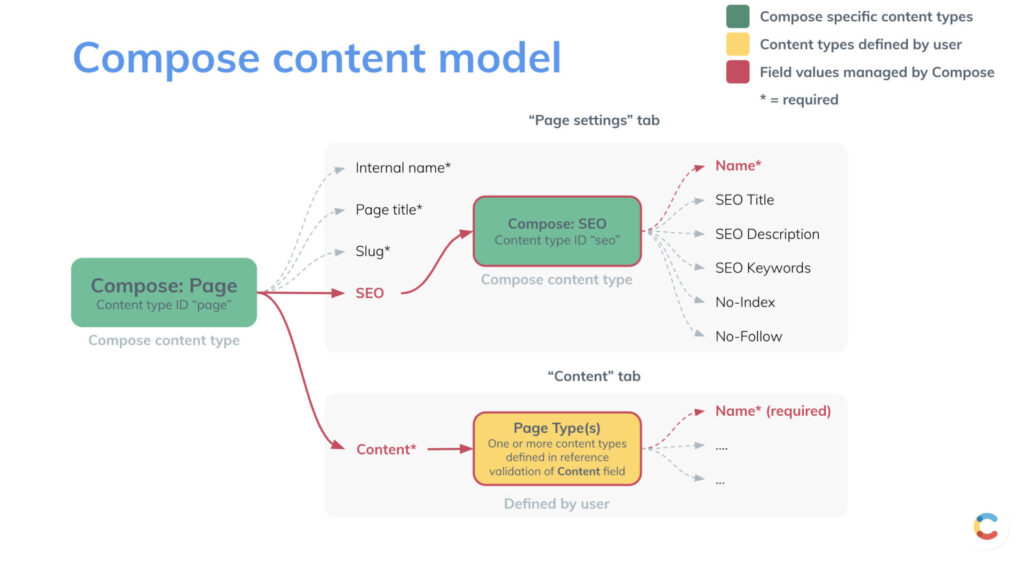
Content structure is another important piece of on-page optimization. This comes down to making sure that your website is user-friendly.
There are a few different ways to look at this. You can look at this from an entire website perspective and be sure that your navigation is set up well. This means making sure that your important pages are accessible from the menu on your site, and that you can easily move from one page to another.

The next way to look at this is from a perspective. Make sure your page structure makes sense. Don’t have huge blocks of text in your content, because this makes your content difficult to consume. You need to have a focus on user experience and then this piece will take care of itself.
3. Title Tag
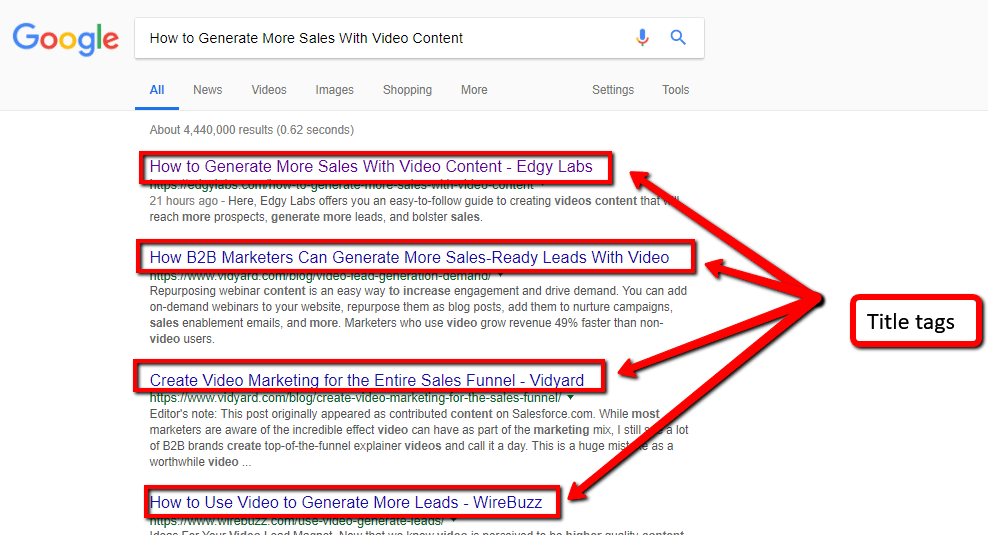
Title tags are probably the most important thing you need to optimize when it comes to on-page optimization. It makes sense too. This is your chance to let everyone know exactly what your page is about. If you don’t include your target keyword in the page title, why would search engines think your page is about that keyword?
It’s important to make your title tag both user-friendly and keyword-heavy. You want to be sure you are including your target keywords in the title, but also make sure your title tag is compelling and that users will want to click on your result.
4. Meta Description
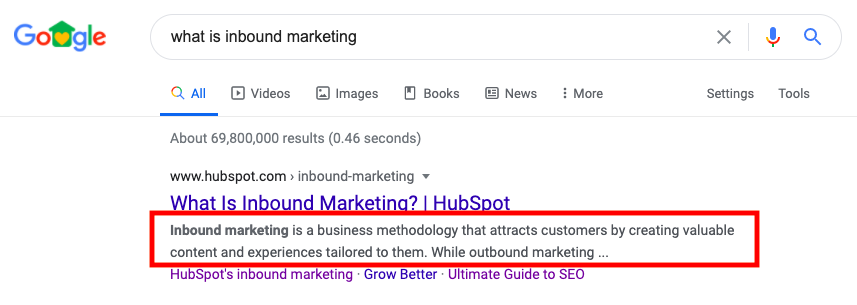
Meta descriptions have been a debatable topic in the SEO community. Some believe it is a ranking factor and some do not. I personally did some testing on this recently and can confirm that meta descriptions are a ranking factor.
The meta description is the area that lets you describe what your page is about. Again, this is an opportunity to make your result a compelling result while also including your main keywords. Make sure that when users see your result, they will want to click on it based on your description.
5. Headings

Heading tags are another very important ranking factor. It used to be thought that specifically H1 tags were the most important. Not that they aren’t important anymore, but Google has mentioned that all heading tags are equally as important.
This means that you should include your keywords in the headings when it makes sense. You don’t have to try to stuff everything in the H1 tag. Feel free to spread it out and use different variations in different headings.
6. Keyword Usage
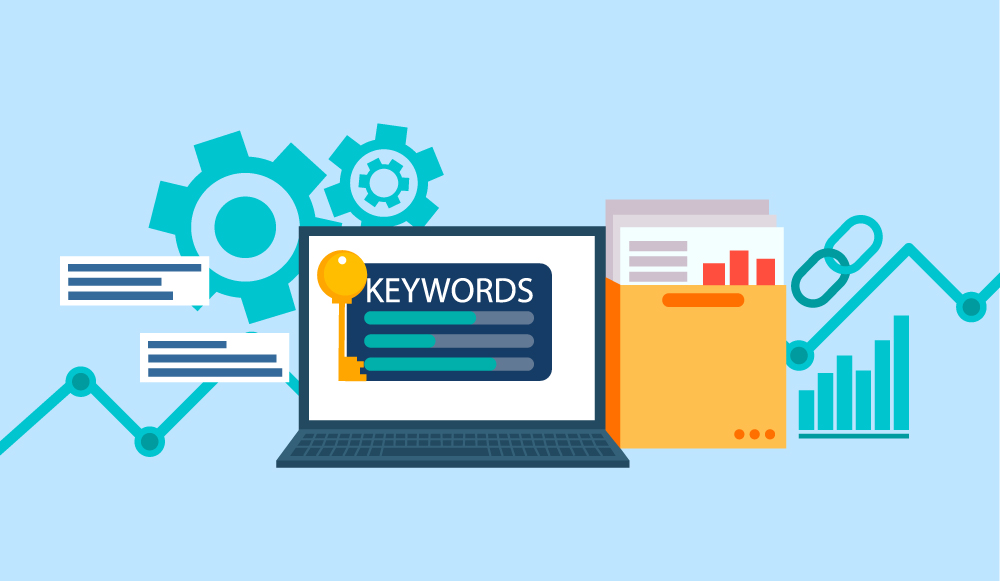
This one is fairly obvious. You are going to need to use your keyword within your content for Google to understand that your page is about that keyword.
The important thing to understand here is that you shouldn’t just use your main keyword over and over again within your content. You should have multiple keywords you are targeting and you should use variations of those keywords in your content. This will help you rank for more keywords, and will also help keep your content more natural.
7. URL

When creating pages and blog posts around the keywords you want to rank for, you should include that in your URL too. Be sure to keep the URL short, but include your keyword when possible.
8. Image Optimization

Optimizing images is another way that you can improve your relevance to target keywords. This can be done in a few different ways.
The big ways are including keyword variations in the name of your image, and in the alt text of the image. This is another thing that I was skeptical about but was able to test and confirm that optimizing alt text is a ranking factor.
9. Internal Links

Internal links are an underrated aspect of on-page optimization. The reason it is so important is that it allows you to pass authority from page to page within your website. If you have a website with high authority, you are going to want to link to your other pages so that you have a better chance of getting every page ranked high.
10. External Links
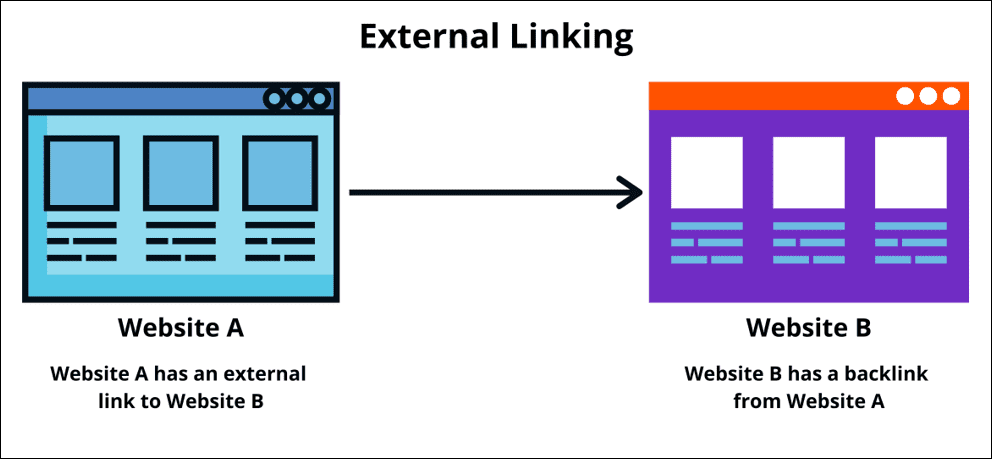
External links are another debatable topic when it comes to ranking better. Some believe linking to high-quality external websites shows Google that they should trust you.
I haven’t seen conclusive evidence either way with this one, but I think as a general rule, it is good to include links to high-authority websites. If nothing else, this will help provide a good user experience and provide more value for your website visitors.
Conclusion
We can talk about all the on-page optimization factors, but what it really comes down to is making sure that search engines and users are able to understand what your page is about. This can be done by including keywords and variations in important areas on your website.
The most important part of on-page optimization is using relevant keywords without keyword stuffing. One last thing to remember is that you really only need to use your keywords a few times within your content to really nail down the on-page optimization. Knowing the importance of on-page SEO will help your entire website rank better.









